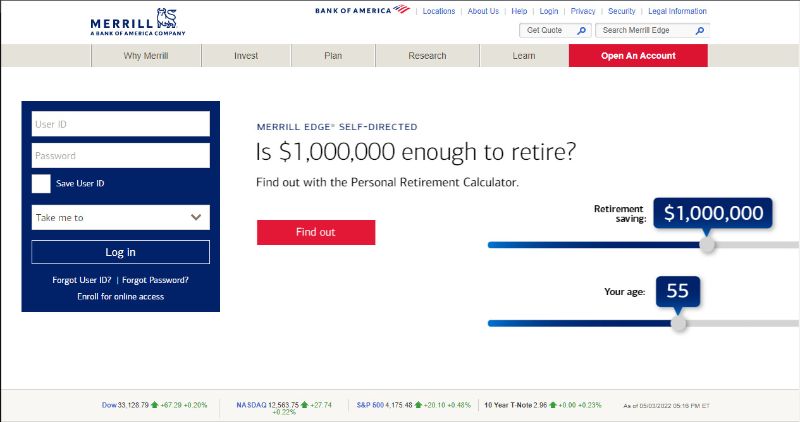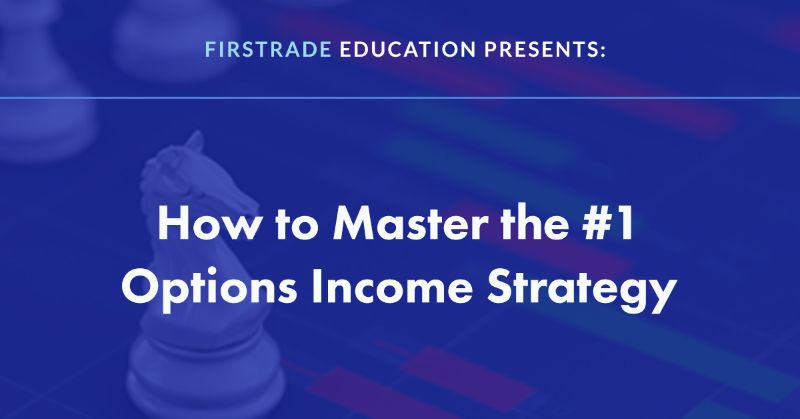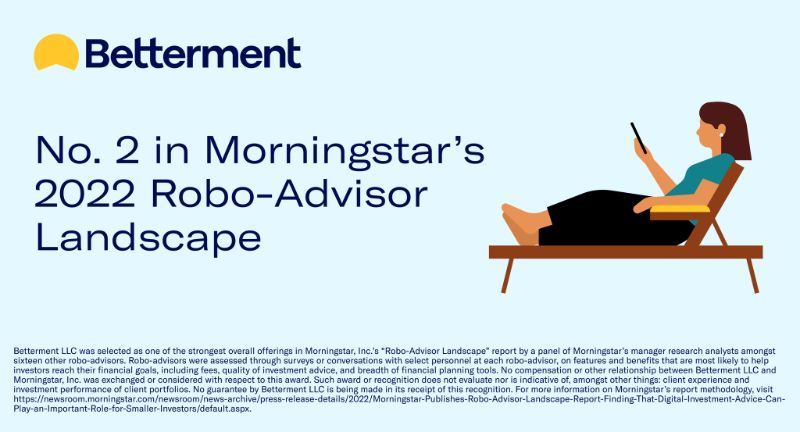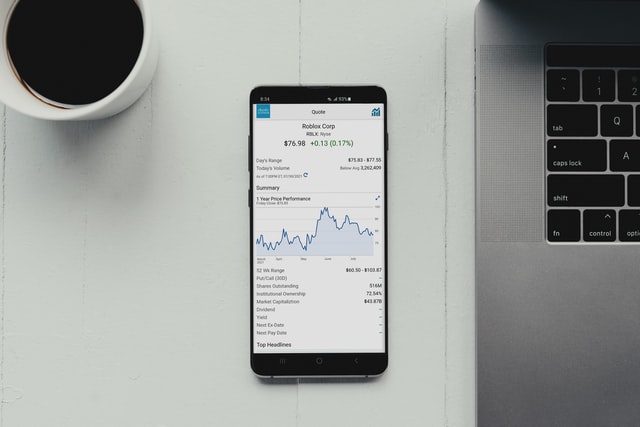Investing is crucial for everyone, regardless of age. It helps you create passive income, grow your wealth, build emergency funds, prepare for retirement, and meet financial goals. However, to invest wisely and effortlessly, you need a trustworthy platform.
While there is no shortage of financial firms that let you trade online, not all are the same in terms of services, or ease of use.
This post will discuss some popular E-Trade alternatives that let you trade in bonds, equities, index funds, etc. If you do not want to use this brokerage for some reason, you can try them.
Table of Contents
- Best-Of by Category
- Best E-Trade Alternatives to Consider
- 1. M1 Finance
- 2. Wealthfront
- 3. Robinhood
- 4. Impact App by Interactive Brokers
- 5. Acorns
- 6. Wealthsimple
- 7. Personal Capital
- 8. TD Ameritrade
- 9. Charles Schwab
- 10. Ally Invest
- 11. Merrill Edge
- 12. Firstrade
- 13. Fidelity
- 14. Vanguard
- 15. Betterment
- What is E-Trade?
- Multiple Investment Choices
- Discounted Commissions
- Automated Investment Management
- Advanced Mobile App
Best-Of by Category
| Category | Product |
|---|---|
| Best for Multiple Investment Choices | M1 Finance |
| Best for Automated Investment Management | Wealthfront |
| Best for Discounted Commissions | Robinhood |
| Best for Advanced Mobile App | Impact App by Interactive Brokers |
Best E-Trade Alternatives to Consider
Undoubtedly, E-Trade is a popular online broker, but it is not the only platform available. Over the years, several online brokerage platforms have evolved that provide better services.
So why not investigate these E-Trade alternatives and see what they offer?
1. M1 Finance

M1 Finance is one of the best alternatives to E-Trade. This US-based financial company was founded in 2015 by Brian Barnes.
Like E-Trade, it lets you invest in exchange-traded funds, common stocks, preferred stocks, and several other financial assets. It also gives you access to fractional shares.
Most people prefer M1 Finance over E-Trade as it is a personalized and automated trading system. M1 Finance has a user-friendly application that works seamlessly on Android and iOS.
M1 Finance allows you to make an investment portfolio with low-cost individual stocks and ETFs. You can choose from 80+expert-built portfolios. The good thing is that you do not need to pay asset management fees or trading fees.
Pros
- M1 Finance supports easy account setup. Once you have created your username and password, you are ready to onboard. You have to respond to general questions regarding your investment experience.
- The platform allows you to choose from several pre-built pies. These pies have a mix of risk levels. You can also customize the pie as per your preference. You do not need to pay any management fee or annual membership charges for pies.
- M1 Finance allows you to interact via a website and mobile application. If you have any queries, you can interact with their bot. You can also write to them through email. They also have a comprehensive FAQ section to assist you in getting started.
- M1 Finance does not charge a fee for account management or trading. Besides, margin loans are available at low-interest rates.
Cons
- If you change brokers’ careers, you will have to pay a $100 fee.
- Tax-loss harvesting is not available.
- Lacks financial calculators
See Related: Best Apps for Automatic Investing in ETFs
2. Wealthfront

When it comes to E-Trade alternatives, Wealthfront is a popular name. It is a California-based investment service company that came into existence in 2008. Andy Rachleff and Dan Carroll founded it.
Wealthfront is known for its Robo-advisor and goal planning. It recommends a wide range of affordable, tax-efficient, and diversified portfolios of index funds and exchange-traded funds. Besides this, you can also invest in cryptocurrency and US Direct indexing.
Apart from this, Wealthfront also supports socially responsible investing. It is an excellent investing platform for long-term investments, retirement planning, and education savings.
Pros
- Wealthfront makes it simple to open an account. Take the financial goal and risk quiz, and your investment portfolio is ready.
- It has an advanced Robo-advisor that suggests the best-suited portfolio according to your risk tolerance capacity.
- Wealthfront does not charge a trading commission or a withdrawal fee. However, you will have to pay a 0.25 percent annual advisory fee. For instance, if you have an account balance of USD $10,000, you will be charged USD $25 per year, which is quite nominal.
- It offers a diverse range of financial products to meet the needs of all customers.
- Wealthfront automatically reinvests profits and rebalances your portfolio. It also employs a tax-loss harvesting technique to reduce the tax amount you pay when investing.
- Customers can invest up to 10% of their financial assets in cryptocurrency through the (GBTC) Grayscale Bitcoin Trust.
- You can check your monthly statements on their website.
Cons
- Wealthfront does not give large-balance discounts.
- You do not get a fractional share.
3. Robinhood

Vladimir Tenev and Baiju Bhatt are the brains behind Robinhood. It is a FINRA-regulated brokerage firm registered with the US Securities and Exchange Commission.
Robinhood is also among the top E-Trade alternatives. Like E-Trade, Robinhood is also a California-based financial service company. Furthermore, both broking platforms allow you to trade in stocks and exchange-traded funds.
However, Robinhood lacks some essential securities, such as bonds and mutual funds. You can have access to taxable investment options only. Nevertheless, Robinhood lets you invest in cryptocurrencies.
Pros
- Robinhood features a user-friendly interface that any novice can easily understand. Depending on your convenience, you can use their mobile application or web-based platform.
- Since there is no minimum limit, you can open the account with a zero balance.
- You can invest in IPO (Initial Public Offering) as well.
- Robinhood does not charge any fees for trading options.
- People can trade in stocks, funds, gold, and crypto without paying a commission fee.
- You can choose Robinhood Gold membership to get comprehensive research reports from Morningstar. The report comprises general market data and trade on margin.
Cons
- Robinhood offers a limited investment option.
- It lacks Robo advisory.
- Limited educational resources.
4. Impact App by Interactive Brokers

IMPACT App by Interactive Brokers is also one of the promising alternatives to E-Trade. This new app from IBKR helps you research and invests in firms sharing your values. The application lines up your portfolio for ESG Investing.
People can align their portfolios with the value of their choice.
The IMPACT app is available on both Android and iOS platforms. You can use it to invest in ESG ventures and crucial impact values, such as clean air, clean water, ocean life, pure water, fighting racism, and much more.
The app has a tool called, Explore, that helps you search for the investment funds matching your ESG values.
Additionally, the company provides in-depth resources on ESG education. You can find it on Impact’s website.
Pros
- With IMPACT, you can invest infractions. It comprises purchasing a small portion of the large stock. The price of these shares begins at USD $1.
- There are no fees or commission charges. You can take advantage of commission-free trading on US stocks and ETFs if you are a US client. Non-US clients will have to pay a small commission to trade on US stocks.
- IMPACT is powered by IBKR, the no. 1 broker of 2021.
- The IMPACT app allows you to offset your carbon footprint by just using the app!
Cons
- The look and feel of this trading app are user-friendly, but the user interface could be improved.
See Related: Public Investment App Review: Is it Worth It?
5. Acorns

If you are a first-time investor, Acorns can be a good choice. Based in Irvine, California, the company has been offering financial services since 2012.
The platform has been targeting Millennial and Gen-Z investors. While it is a micro-investing platform, you get better investment offers than E-Trade.
Like most online brokers, Acorn charges zero for account opening. The good thing is that you can start trading with just USD $5. For the taxable brokerage account, the company charges $3.
The expense ratio of Acorns is relatively low. Depending on the percentage of your investment, it costs you about 0.05% to 0.18% annual fee.
Acorns app has a Robo-advisor that helps you choose from 25 affordable diversified ETFs. It has an intelligible yet user-friendly interface.
After examining your financial goals, risk tolerance, and investment timeline, it selects the best ETFs for you.
You can fund your account with automatic recurring deposits and manual deposits.
Pros
- This micro-investing app is ideal for beginners and those having limited funds to invest.
- Acorns app allows you to create an ESG portfolio composed of multiple ETFs that provide exposure to sustainable firms.
- The app offers various cashback benefits making the investment more enjoyable.
- It has a lot of educational content to enhance your knowledge.
- The app automatically rounds up your extra cash to get you started investing.
Cons
- It charges a high fee for low account balances.
- You do not get any tax benefits.
- It supports only limited investment programs.
See Related: Best Stock Trackers to Use Today
6. Wealthsimple

Founded by Michael Katchen in 2014, Wealthsimple is another popular E-Trade alternative that you can consider. It is a Toronto-based online investment firm targeting Generation X specifically.
Wealthsimple invests your deposit in a globally diversified portfolio of low-cost index funds. It naturally minimizes the risk.
The platform ensures high returns by managing a portfolio using tried-and-true market techniques. Furthermore, Wealthsimple improves your return margins by optimizing your tax bill.
Wealthsimple gives you access to Robo-advisor as well as live advisors. The company has knowledgeable financial advisors who manage your finances. Besides, you get advice on the investments that suit your finances.
Wealthsimple does not impose a transaction fee, and there is no account minimum. The only fee you have to pay is an annual fee. It ranges from 0.4% to 0.5% as per your account size.
Pros
- Wealthsimple supports investing on autopilot. The company invests in an intelligent portfolio of low-fee funds.
- You can also trade in cryptocurrency and socially responsible investments.
- Wealthsimple gives you features like auto-deposits, dividend reinvestment, automatic rebalancing, and more.
- You receive free portfolio analysis.
Cons
- Wealthsimple has only a few personal finance tools.
- The account management fee is a bit higher.
See Related: eToro Review: Is It Legit and Worth Using?
7. Personal Capital

Personal Capital is a well-accepted financial platform. It offers various tools for portfolio analysis, budgeting, cash management, and personal finance.
Depending on your account balance, you get two dedicated advisors or a team of advisors. Personal Capital is best suited for investors with high net worth and long-term goals.
The headquarters of the company is in Redwood Shores, California. It also has offices in Denver, San Francisco, Dallas, and Atlanta. Like what you are hearing? Read our full Personal Capital Review.
Pros
- Personal Capital has a well-designed and easy-to-use dashboard. You have quick access to your financial information.
- The company has a sophisticated tax optimization technique.
- You receive free tools for assessing, forecasting, and planning your investments.
- Personal Capital makes it easy to keep an eye on your investment growth, returns, and fees.
- You get real-time reporting and individual securities on demand.
- Personal Capital offers you the services of dedicated financial advisors.
Cons
- Personal Capital charges more than the average fee for personal capital’s wealth management program and advisor.
- The minimum investment for the Advisor program is $100,000.
8. TD Ameritrade

While there are several E-Trade alternatives, TD Ameritrade delivers tough competition. Whether you are a novice or seasoned investor, it accommodates your requirements.
TD Ameritrade gives you a wide range of investment options. You can trade in stocks, mutual funds, ETFs, futures, bonds and CDs, and Foreign ADRs.
While you don’t get direct access to crypto, qualified investors can trade in CME Bitcoin futures.
If you compare TD Ameritrade vs. E-Trade, the former has better research & educational resources.
Unfortunately, TD Ameritrade is a little expensive for Mutual fund trade fees and Futures per contract. Thankfully, there is no account minimum and stock trading cost.
Pros
- TD Ameritrade offers commission-free ETF and stock trading.
- You get extensive investment choices. TD Ameritrade offers a range of bonds, stocks, mutual funds, and more.
- TD Ameritrade has a premium quality mobile and web-based platform.
- The user interface of TD Ameritrade supports self-learning. You can experience a seamless, personalized experience.
- TD Ameritrade provides 24/7 customer support via email, live chat, social media, and phone.
Cons
- You cannot invest in fractional shares.
9. Charles Schwab

Charles Schwab is a popular online brokerage platform that offers a wide range of investment products. Depending on your capital and preference, you can invest in ETFs, Mutual Funds, Options, Stocks, Index Funds, CDS, and Fixed Income. Charles Schwab has been meeting the requirements of a broad customer base with its multiple trading platforms.
Like E-Trade, it does not charge for account opening. Moreover, you don’t have to pay any commission fee. However, you have to pay $0.65 per contract commission on each leg strategy for Options trades.
Pros
- Charles Schwab offers both Robo-advisory and physical branch services.
- You can access the platform using its mobile app, desktop, and web-based interface.
- Charles Schwab lets you trade in ETFs and Stocks for free.
- You can access live customer service through phone or chat.
Cons
- Trading on cryptocurrency is limited.
- It does not allow for cash sweeps to money market accounts.
10. Ally Invest

Ally Invest is among the promising E-Trade alternatives. It is a brokerage platform of Ally Bank. If you are an investor or trader looking to start investing at a low level, Ally Invest could be ideal.
There is no commission fee for ETFs and Stocks. For options trades, you need to pay $0.50 per contract. You can invest as little or as much as you like because there is no account minimum.
Whether you are an active trader, options trader, or forex trader, you can gain an advantage from this web trading platform. If you already have an account with Ally Bank, you can access your entire financial report on a single platform.
Like what you are hearing? Read our full Ally review.
Pros
- With zero trading charges on qualified US securities, Ally Invest is suitable for both beginners and seasoned investors.
- Besides regular investing options, you can invest in Forex trading.
- You can quickly shift your money between Ally brokerage accounts and Ally saves. However, for the same, you must have an account with Ally savings.
Cons
- There is no futures and cryptocurrency trading.
- Ally Invest mobile app does not feature all the available trading products.
11. Merrill Edge

This online trading platform from BofA Securities is a part of Bank of America’s retail banking division. It provides you with a comprehensive range of investing options. You can invest in stocks, ETFs, mutual funds, options, and margin trading.
Pros
- Merrill Edge does not require an account minimum. Furthermore, there is no fee for stock trading, inactivity, and transfer.
- You can choose from countless high-quality free stocks and ETF trades.
- Merrill integrates with Bank of America. Therefore, you get physical assistance in all their branches.
- Merrill Edge Provides you with 24/7 support via phone, chat, and email.
- You can get research, ratings, and reports about investment products from over 30 different sources.
Cons
- Merrill Edge does not offer crypto-related products.
- It does not offer a free trial account.
- There are only a few deposit and withdrawal choices.
- The platform is limited to US clients and products.
12. Firstrade

Regulated by SEC (Securities and Exchange), Firstrade is a well-known US-based stockbroker firm. It came into existence in 1985 as Flushing Securities.
As high-level regulators oversee it, Firstrade is a secure brokerage platform. It allows you to trade in ETFs, funds, free stock, and options trading. The trading fee is zero, but the margin rates are high. The best thing is that there is no minimum deposit for U.S. and international clients.
Firstrade offers various research tools to guide you in suitable investment. Account opening is easy and fully digital, but you might have to wait for a day or two for the verification.
Pros
- Firstrade offers commission-free trading on ETF, stock, and options trades.
- It has a user-friendly platform.
- All the mutual funds are commission-free.
- Firstrade supports even Chinese language options.
Cons
- Firstrade does not support live chat.
- You cannot trade outside the United States.
- It does not support electronic wallets and cards for money transfers.
13. Fidelity

Are you looking for value-for-money E-Trade alternatives? Fidelity is a prominent online brokerage and a trading platform offering a selection of ETFs, stocks, and no-expense-ratio index funds without any commission.
Fidelity was founded in 1946 by Edward C. Johnson II (who later became Fidelity’s chairman) as a discount stock brokerage firm called FMR Corp., which launched Fidelity Investments in 1977.
This U.S.-based brokerage platform is known for its competitive pricing, extensive research and investment tools, and quick customer service.
There is no account minimum required to open an account. Trading in stocks and ETFs requires a zero fee. However, option trades cost $.65 per contract.
Fidelity gives you access to more than 13,000 mutual funds. You can buy and sell them without paying a fee. If you sell the fund within 60 days after acquisition, you must pay a $49.95 short-term redemption fee.
Pros
- Fidelity offers commission-free U.S. stocks and ETFs.
- You get various tools to get trading ideas and conduct trading research.
- It allows you to trade in the United States and international stocks.
Cons
- Account verification might take some time.
- It does not support futures and crypto.
14. Vanguard

Vanguard is a low-cost, no-frills investment company. While it does not have all of E-Trade’s attractive additional features, Vanguard offers an industry-leading S&P 500 Index Fund (VFINX) with a 0.05% expense ratio.
Vanguard Brokerage was founded in 1983 by John C. Bogle. Today, it has become synonymous with low-cost investing. Vanguard is one of the largest providers of mutual funds and exchange-traded funds (ETFs). The company has its head office in Malvern, Pennsylvania, United States.
There is no minimum deposit requirement. However, its funds generally start at USD $1000. For options, you will pay $1 per contract.
Pros
- Vanguard offers several low-cost investment options that are excellent choices for retirees and investors who prefer long-term buy-and-hold.
- You can trade in stocks, options, and ETFs without paying commissions.
- Vanguard has a large selection of mutual funds.
- If you are a novice, you can benefit from Vanguard Digital Advisor. It provides you with personal financial consultancy for complicated financial situations.
- Vanguard offers low-cost funds.
Cons
- Vanguard is a standard trading platform with limited research and data.
15. Betterment

This list of E-Trade alternatives could not complete without listing Betterment. It is an American financial advisory firm that offers a wide range of cash management and digital investment services.
Betterment is a Securities and Exchange Commission-registered company. Therefore, it is a trustworthy platform for socially responsible investing, Portfolio options, and IRAs. You can also make good use of their automatic investing feature.
Betterment has a leading Robo-advisor service with $27 billion in assets under management.
The company offers low-fee investment, making it an ideal platform for beginners. It is an extensive portfolio of low-cost ETFs and mutual funds.
If you are planning to invest for your retirement, home down payment, or university fund, Betterment won’t disappoint you.
Betterment provides two services: Betterment Digital and Betterment Premium. The latter option requires you to have a balance of $100,000, and it has an annual fee of 0.40%. Betterment Digital charges a 0.25 percent annual management fee.
Pros
- Betterment is notable for Robo-advisor and cash management.
- It supports a goal-based approach that means you invest a certain amount for a certain period.
- Betterment provides multiple portfolio options and customization.
Cons
- You may get overwhelmed with a wide range of portfolio options.
- It does not support direct indexing.
So these are some of the top alternatives to E-Trade. Choose the one that meets your requirements and is competent to fulfill your investment goals. Happy Investing!
See Related: Best Farmland Investing Platforms
What is E-Trade?

E-Trade, officially known as E-Trade Financial Corporation, is a US-based financial firm. It allows people to invest in stocks, exchange-traded funds, and fixed-income investments.
E-Trade is one of the oldest and most popular online brokerage platforms in the United States. It offers a secure way to trade stocks, ETFs, and other investment programs.
The company came into existence in 1982, having headquarters in California, United States. The founding members of E-Trade are William A. Porter and Bernard A. Newcomb.
Morgan Stanley, a global financial services and investment banking company, acquired E-Trade in October 2020. Now, E-Trade is operating as a subsidiary of Morgan Stanley.
E-Trade is a well-known US-based online trading platform catering to people with different investing interests.
The platform offers comprehensive educational resources and advanced research and investing tools. You can quickly track the performance of your investment and learn the essential market news.
Let us learn what services E-Trade offers.
Multiple Investment Choices
E-Trade gives you the liberty to invest in a wide range of tradable securities. People can invest in stocks, ETFs, Mutual funds, Bonds, and more. Additionally, the platform offers Futures to active traders who want to invest in high-risk yet high-return securities.
Discounted Commissions
E-Trade has zero commission for ETF and stock trades. Therefore, both novice and experienced investors use this platform. Unlike its competitors, the platform offers discounted commissions for options trades. It costs $0.65 per contract.
Automated Investment Management
E-Trade handles your day-to-day investing. The company builds and manages your portfolio and enables you to keep track of long-term goals. A Robo-advisor helps you manage your portfolio and keep track of your long-term.
Advanced Mobile App
E-Trade features an advanced mobile application. You can manage your investments with a few touches on your smartphone. E-Trade has two mobile applications for investors with different interests.
Also, E-Trade users can trade different assets, such as bonds, funds, stocks, and futures. However, this mobile trading platform does not offer cryptocurrency and foreign exchange trading.
Related Resources
- Best Farmland REITs for Agriculture Investing
- IMPACT App by Interactive Brokers Review: Is It Legit?
- Best Wealthfront Alternatives | Apps Like Wealthfront
- Best Fidelity Alternatives
Kyle Kroeger, esteemed Purdue University alum and accomplished finance professional, brings a decade of invaluable experience from diverse finance roles in both small and large firms. An astute investor himself, Kyle adeptly navigates the spheres of corporate and client-side finance, always guiding with a principal investor’s sharp acumen.
Hailing from a lineage of industrious Midwestern entrepreneurs and creatives, his business instincts are deeply ingrained. This background fuels his entrepreneurial spirit and underpins his commitment to responsible investment. As the Founder and Owner of The Impact Investor, Kyle fervently advocates for increased awareness of ethically invested funds, empowering individuals to make judicious investment decisions.
Striving to marry financial prudence with positive societal impact, Kyle imparts practical strategies for saving and investing, underlined by a robust ethos of conscientious capitalism. His ambition transcends personal gain, aiming instead to spark transformative global change through the power of responsible investment.
When not immersed in the world of finance, he’s continually captivated by the cultural richness of new cities, relishing the opportunity to learn from diverse societies. This passion for travel is eloquently documented on his site, ViaTravelers.com, where you can delve into his unique experiences via his author profile.
